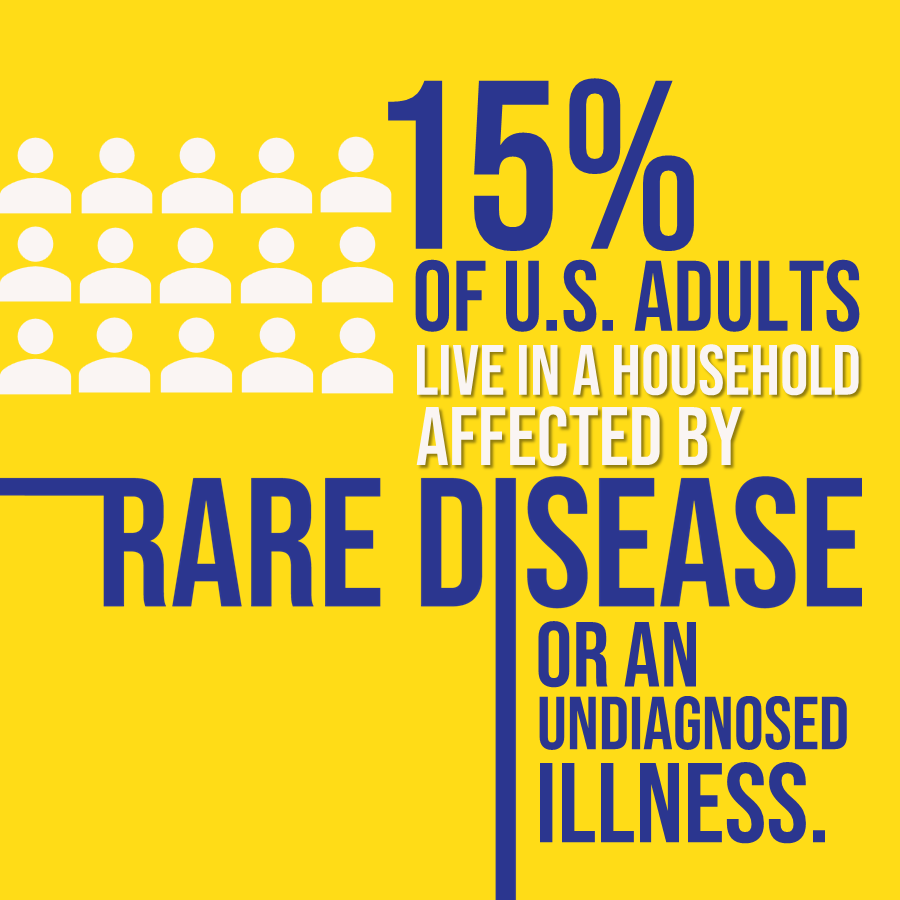
As a researcher, I track the social impact of the internet on American society, particularly as it relates to health and health care.
My most recent research report, “Rare Disease in the U.S. 2025,” was released on February 25, 2025. Key findings include:
- 63% of U.S. adults who reported living in a rare disease household have, in the past year, seen a doctor or other health care provider, such as a specialist, online or via a telehealth appointment, compared with 45% of those not living in a rare disease household.
- 50% of U.S. adults who reported living in a rare disease household have, in the past year, gone online to find other people who might have health concerns similar to their own, compared with 37% of those not living in a rare disease household.
- 38% of U.S. adults who reported living in a rare disease household have, in the past year, used an AI tool such as ChatGPT or Gemini to learn about a health condition or treatment options, compared with 21% of those not living in a rare disease household.
My book, Rebel Health: A Field Guide to the Patient-led Revolution in Medical Care, is now available in paperback.
Key data points on U.S. teens and adults:
96% of U.S. adults go online. Nearly all teens have access to the internet and 46% say they are online “constantly.” (Adults: 2024; teens: 2022)
- Since older adults are of particular interest to many people in health care, I’ll add: 90% of U.S. adults ages 65+ use the internet. Education plays a role in seniors’ tech adoption: College graduates go online at significantly higher rates than those with lower levels of education.
98% of U.S. adults have a cellphone. 91% of U.S adults own a smartphone. 95% of U.S. teens either have a smartphone or access to one. (Adults: 2024; teens: 2022)
Most U.S. adults use some type of social media. Facebook and YouTube remain the most popular platforms. 93% of U.S. teens and young adults (ages 14-22) report using social media. (Adults: 2024; teens: 2018)
85% of U.S. teens and young adults (14- to 22-year-olds) say they have gone online for health information. The top five topics searched by this age group are COVID-19, fitness, anxiety, stress, and depression. (2020)
69% of U.S. teens and young adults say they have used mobile apps related to health, including for fitness, sleep, menstruation, and meditation, among other topics. (2020)
61% of of U.S. teens and young adults say they have read, listened to, or watched other people share about their health experiences online, whether in podcasts, TED talks, or YouTube videos. (2018)
40% of U.S. teens and young adults say they have gone online to try to find people with health conditions similar to their own. (2020)
One third (33%) of U.S. teens and young adults have successfully connected with health peers online, and 91% of them say the experience was helpful. (2018)
15% of U.S. households are affected by rare disease or an undiagnosed illness. People affected by rare disease or undiagnosed illness are more likely than others to use telehealth options, AI tools to learn about a health condition or treatment options, and to go online to find other people with similar health concerns. (2025)
Research reports and journal articles:
“Rare Disease in the U.S. 2025,” produced in partnership with SSRS, ARCHANGELS, and the Association on Aging in New York. February 25, 2025.
“Coping with COVID-19: How Young People Use Digital Media to Manage Their Mental Health.” Common Sense/Hopelab/California Health Care Foundation. March 2021. (Key findings)
“How Chronic-Disease Patients Are Innovating Together Online.” Harvard Business Review. April 2020.
“Digital Health Practices, Social Media Use, and Mental Well-Being Among Teens and Young Adults in the U.S.” Hopelab/Well Being Trust. July 2018. (Key findings)
“The Web at 25 in the U.S.” Pew Research Center. February 2014.
“The Social Life of Health Information.” Pew Research Center. January 2014.
“The Diagnosis Difference.” Pew Research Center. November 2013. (See: Sources of Health Information section.)
“Family Caregivers are Wired for Health.” Pew Research Center. June 20, 2013.
“After Dr. Google: Peer-to-Peer Health Care.” Journal of the American Academy of Pediatrics (Vol. 131 No. Supplement 4 June 1, 2013; pp. S224 -S225).
“Tracking for Health.” Pew Research Center. January 28, 2013.
“Health Online 2013.” Pew Research Center. January 15, 2013.
“Mobile Health 2012.” Pew Research Center. November 8, 2012.
“Family Caregivers Online.” Pew Research Center. July 12, 2012.
“Bowling Alone, Healing Together: The Role of Social Capital in Delivery Reform.” The American Journal of Managed Care: Volume 18, Number 6. June 2012.
“The Social Life of Health Information, 2011.” Pew Research Center. May 12, 2011.
“Peer-to-peer Healthcare.” Pew Research Center. February 28, 2011.
“Health Communication 2.0: The Promise of Peer Participation.” Building the Evidence Base in Cancer Communication. 2010.
All the reports, presentations, and commentaries I wrote while at the Pew Research Center.
Featured image: “mesmerized by numbers” by Hsing Wei on Flickr
Recent Comments